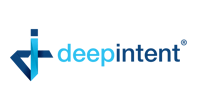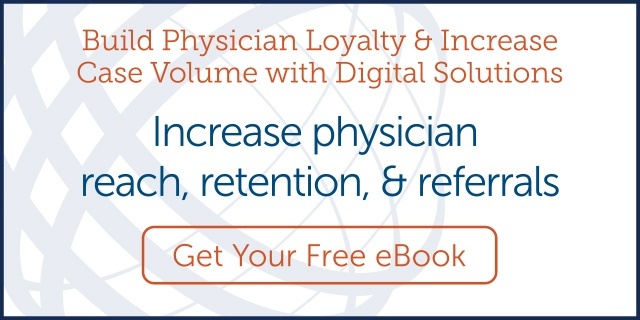

Chris Paquette is the co-founder and CEO of DeepIntent, a marketing technology company that operates a specialized programmatic marketplace to improve communication between healthcare brands, patients, and verified healthcare professionals.
Chris draws on his multifaceted expertise to bring a uniquely valuable perspective to healthcare marketing. After graduating from Binghamton University with a bioengineering degree, Chris launched his martech career. Prior to founding DeepIntent, Chris was a Data Scientist at Memorial Sloan Kettering Cancer Center, where he developed systems that leveraged bleeding-edge machine learning and artificial intelligence to improve patient experiences and outcomes. Chris co-founded DeepIntent in 2015; under his leadership, the company has grown from a mere idea to a global operation that proudly serves several major pharmaceutical and Fortune 500 companies out of its offices in New York, California, and India.
Outside of the office, Chris is an avid traveler and enjoys the outdoors; some of his favorite hikes were in Southeast Asia and Chilean Patagonia. Chris currently resides in New York City with his fiancé, Kelly.
In this installment of our Pharma Innovator blog series, I sat down with Chris Paquette, 
Co-Founder & Chief Executive Officer of DeepIntent, to talk about the company’s efforts to optimize communication among healthcare brands, patients, and providers. We also discussed DeepIntent’s innovative healthcare technology platform, MarketMatch™, which connects advertisers, data providers, and publishers to operate a unified, programmatic marketplace for healthcare marketers.
Driving Health Outcomes
David Reim: What is the DeepIntent mission/vision?
Chris Paquette: DeepIntent strives to improve care and wellness by facilitating better communication between brands, patients, and healthcare professionals. We believe media can drive real health outcomes. Each day, our teams are designing and building new ways to plan, activate, and measure healthcare marketing by eliminating data silos and media fragmentation. We intend to reshape the future of healthcare marketing by building a marketplace that combines offline health data with online identity, allowing media buyers and sellers to transact within a single privacy-safe, data-rich environment.
Audience-Based Marketing
David Reim: What trends do you see among your clients in managing and leveraging information in their digital channels?
Chris Paquette: The rise of first-party data is playing an important role in marketing across all industries, and the healthcare industry is no different. DeepIntent was built to allow clients (healthcare agencies and brands) to quickly deploy their first-party assets to design, plan, and launch highly efficient audience-based marketing to patients and healthcare providers.
We believe media can drive real health outcomes.
For example, DeepIntent’s MarketMatch™ Planner gives our clients the ability to quickly upload an HCP target list or curate a list of targeted providers using specific diagnoses, script writing behaviors, or procedures; calculate match rates and impression forecasts in real-time; and send audiences to our DSP for immediate activation. This is in stark contrast to the current approach to do the same, which takes multiple weeks, various vendors, and results in missed opportunities to influence customers.
Human-Level Connectivity
David Reim: Can you explain how AI plays a critical role in analytics, more specifically how AI captures data that helps healthcare marketers?
Chris Paquette: AI/Machine Learning (ML) sits at the core of how we do what we do for our clients. The ability to build and deploy health predictors into programmatic advertising using a mix of demographic and behavioral data requires massive data, computational infrastructure, and domain expertise. However, AI/ML and human experts have a symbiotic relationship. Ultimately, it is a human patient or provider, not a computer, who receives our communications. Creating human-level connectivity to a marketing message must begin with how we design a message to resonate with the target audience. Mining clinical and media data to measure and quantify the “resonance” and effectiveness of any ad within an audience is an active area of development for us and requires the use of machine learning to distill the right insights about the drivers/motivations of a patient’s or provider’s intent pertaining to their health.
Data Privacy and Transparency
David Reim: As more information is shared online, there are more opportunities for breaches in security. How has DeepIntent ensured their commitment to protecting their customers’ private information?
Chris Paquette: Large-scale data breaches are hitting the headlines more than ever. What we’re seeing is the rampant cyber-assailment of governments and large and small businesses. This threat will only increase over time. These breaches serve as constant reminders that our business depends on the trust of our customers to work with us. Trust starts with caring for our customer’s data. DeepIntent just completed work on developing a HIPAA-compliant, secured computing environment where we’ve implemented state-of-the-art methodologies for analyzing and processing data in a digital “data cleanroom.” We’ve also implemented GDPR-style controls and systems in our ad serving platform, anticipating further state and federal regulation.
We intend to reshape the future of healthcare marketing.
Back during the investigation into the Russian political interference campaign during the 2016 U.S. Presidential Elections, DeepIntent was the first ad technology company to announce a new tool designed to bring transparency to political advertisements. Google and Facebook followed our lead months later. Ultimately, I believe that it is investments like this that demonstrate that we subscribe to the notion that our customer’s fundamental rights include owning and controlling their personal data.
MarketMatch™: Connecting Advertisers, Data Providers, and Publishers
David Reim: In a nutshell, can you explain DeepIntent’s integrated programmatic marketing platform?
Chris Paquette: We’ve observed an industry full of young and old companies fragment and cast themselves into ever-changing technology labels like “DSPs,” “SSPs,” and “DMPs.”
When we first started building DeepIntent, we consciously weaved tech ownership, data control, and efficient scalability into the fabric of our company’s DNA. Instead of white-labeling a DSP, we built it. Instead of renting a natural language processing engine, we built it. We wanted to offer our clients a better way to buy medical claims-based audiences, so we integrated our own data processing and modeling engine directly into our DSP to do so.
The outcome is our holistic healthcare technology platform, MarketMatch™, which connects advertisers, data providers, and publishers to operate the first unified, programmatic marketplace for healthcare marketers. The platform’s built-in identity solution matches digital IDs with clinical, behavioral, and contextual data in real-time so marketers can qualify 1.6M+ verified HCPs and 250M+ patients to find their most clinically-relevant audiences, and message them on a one-to-one basis in a privacy compliant way. Healthcare marketers use MarketMatch to plan, activate, and measure digital campaigns in ways that best suit their business, from managed service engagements to technical integration or self-service solutions.
Read the complete interview here.
About DeepIntent

DeepIntent is a marketing technology company with health at heart. Founded by Memorial Sloan Kettering alumni in 2015, the company strives to improve care and wellness by facilitating better communication between brands, patients, and healthcare professionals.
The company’s healthcare technology platform, MarketMatch™, underpins its efforts. MarketMatch™ connects advertisers, data providers, and publishers to operate a unified, programmatic marketplace for healthcare marketers. Now, brands can deliver timely and relevant digital ads so patients and providers can make informed healthcare and treatment decisions based on the latest, most pertinent information.




